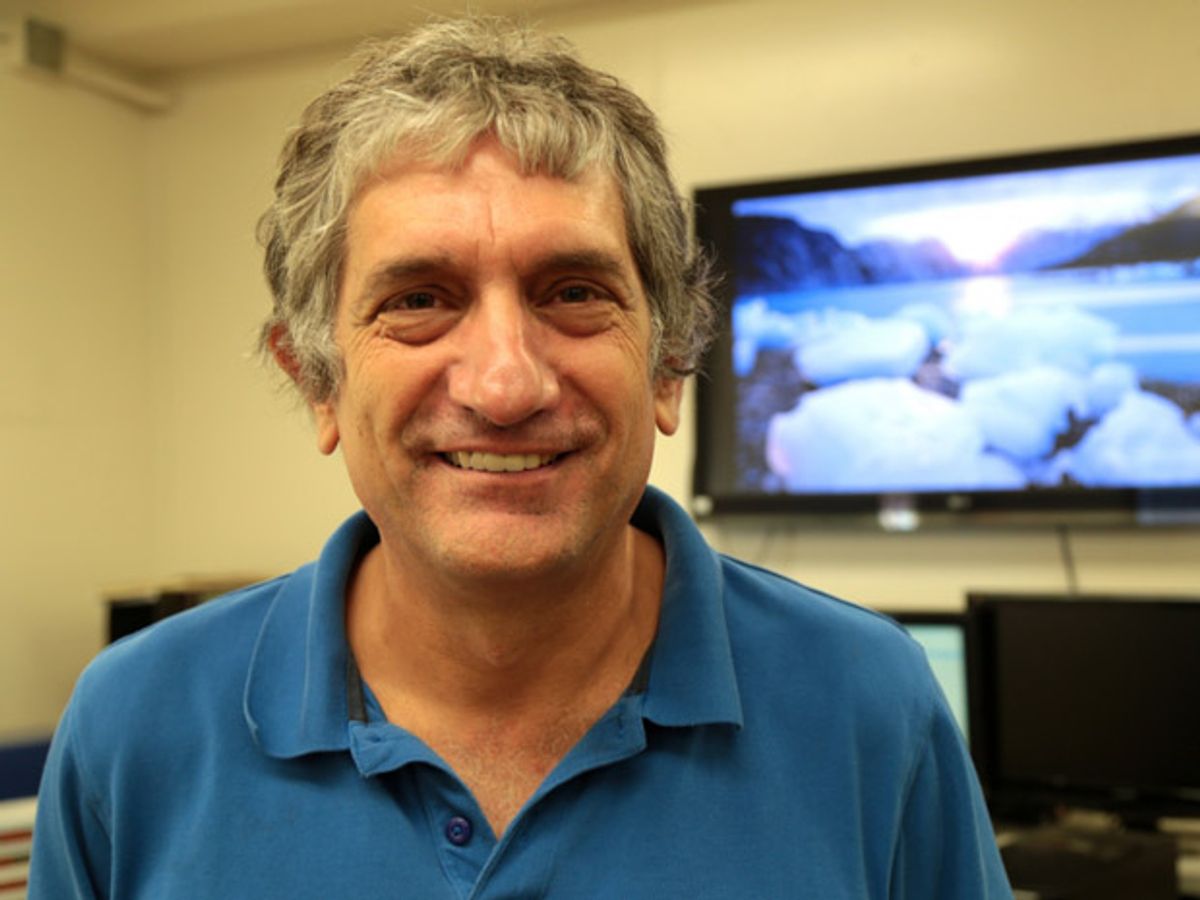Google recently unveiled its intention to build new quantum computing hardware—possibly laying the foundation for a super-fast computer capable of solving problems that would take forever on today's classical computers. The technology giant has already experimented with machines created by D-Wave, a Canadian company that says it has built the world's first commercial quantum computers. But Google's new project has recruited an outside expert with a very different mindset for transforming quantum computing into a practical technology.
Among the new faces at Google's quantum computing lab are John Martinis, a professor of physics at the University of California, Santa Barbara, and his quantum computing team. The Martinis group has been developing hardware based on superconducting quantum circuits. This is one of several ways to realize the potential of quantum computers, which are designed to perform many simultaneous calculations by taking advantage of quantum bits', or qubits', ability to exist as both ones and zeros at the same time. Google hopes to combine the Martinis team's expertise with lessons learned from tinkering with D-Wave's machines to design new quantum information processors based on a superconducting electronics approach.
"With an integrated hardware group, the Quantum AI team will now be able to implement and test new designs for quantum optimization and inference processors based on recent theoretical insights as well as our learnings from the D-Wave quantum annealing architecture," said Hartmut Neven, director of engineering at Google's Quantum Artificial Intelligence Lab, in a blog post.
A quantum computing coalition that includes D-Wave and academic researchers such as the Martinis group would have seemed almost unthinkable just several years ago. When D-Wave first made its confident claim of having built the "world's first commercially available quantum computer" in May 2011, many independent researchers were skeptical. They pointed out that D-Wave's unprecedented speed in scaling up to the 128-qubit D-Wave One machine seemed to ignore the issue of quantum coherence—the challenge of preserving the fragile quantum states of so many qubits. In other words, D-Wave's approach seemed to fly in the face of what physics said was practical.
"I always thought this was a gamble," Martinis told IEEE Spectrum previously. "Like other physicists, I thought it wouldn't work. But I admire them for going ahead and trying it."
Martinis still gave D-Wave credit for building an "amazing piece of technology" with a fairly sophisticated array of "superconducting electronics and control electronics." But Martinis's group has taken a slow but steady approach to building quantum computing hardware by experimenting with error correction codes capable of preserving fragile qubits long enough to perform calculations.
D-Wave rubbed many researchers the wrong way early on with its combination of uncompromising confidence and the relative secrecy surrounding the inner workings of its machines. But D-Wave has recently enjoyed a friendlier relationship with the research community by giving independent experts access to its machines leased by Lockheed Martin and a Google-NASA coalition. That change has probably helped set the stage for Google's umbrella effort to bring together former quantum computing rivals in the name of developing new hardware.
Martinis may have unintentionally foreshadowed his involvement with Google's quantum computing effort during a previous interview with IEEE Spectrum in the summer of 2013. At the time, he wrapped up the interview by saying he was glad that Google was demonstrating an interest in quantum computing by leasing the 512-qubit D-Wave Two machine.
"I hope that if they get to a point where they're looking for other options, they'll come talk to me and other people in the quantum computing community," Martinis said.
Jeremy Hsu has been working as a science and technology journalist in New York City since 2008. He has written on subjects as diverse as supercomputing and wearable electronics for IEEE Spectrum. When he’s not trying to wrap his head around the latest quantum computing news for Spectrum, he also contributes to a variety of publications such as Scientific American, Discover, Popular Science, and others. He is a graduate of New York University’s Science, Health & Environmental Reporting Program.



